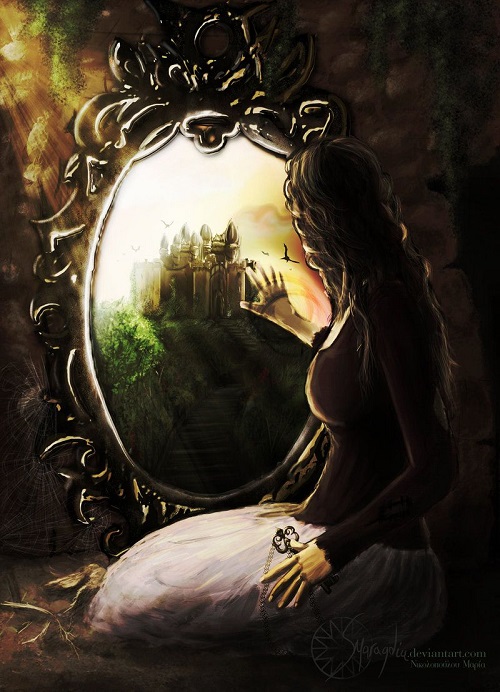FWP:
For discussion of the idiomatic uses of sahii , see {9,4}; on hi sahii in particular (of which nah sahii is a negation), see {148,1}.
I don't see why we have to narrow down the conspicuously wide-open possibilities in this verse. Faruqi says it must be addressed to the beloved, but I don't see why he's so untypically doctrinaire here. Anyone could surely exhort himself along the same lines: don't waste your time, don't disdain your life, don't reject your own inner self, don't abandon your own real temperament. Or the speaker could be exhorting some friend or companion, or the world in general.
There's one more possibility, too, that nobody seems to have mentioned. The reason the addressee is adjured not to disdain or throw away the heart, is that as a 'mirror'-- an extremely well established image for the heart, in Persian and Urdu ghazal; on this see {128,1}-- it is an 'image-possessor'. And tim;saal can mean not just any 'image' or 'picture', but also a literal 'likeness' or 'reflection'-- a reflected image of the mirror-wielder himself. Thus the defense being offered for the heart is that one shouldn't shoot the messenger: if the heart-mirror has no real 'information', but only transitory 'amusement' to display, well-- whose personality is it reflecting, anyway? Whose 'image' is it showing? If you yourself are 'ill-tempered' [be-dimaa;G], how can you blame your heart-mirror for reflecting your own irritation or impatience?
Another 'image-possessing' mirror appears in {16,2}.


Nazm:
That heart in which a whole world of longings and yearnings would be collected-- it's a picturing mirror. Although there's not enough clarity in it for the glory/appearance of mystical knowledge to be able to appear, still this amusement is hardly a lesser thing! If the idols wouldn't be able to emerge from the Ka'bah, then so what? The mood of an idol-house is still present inside it. (257)
== Nazm page 257